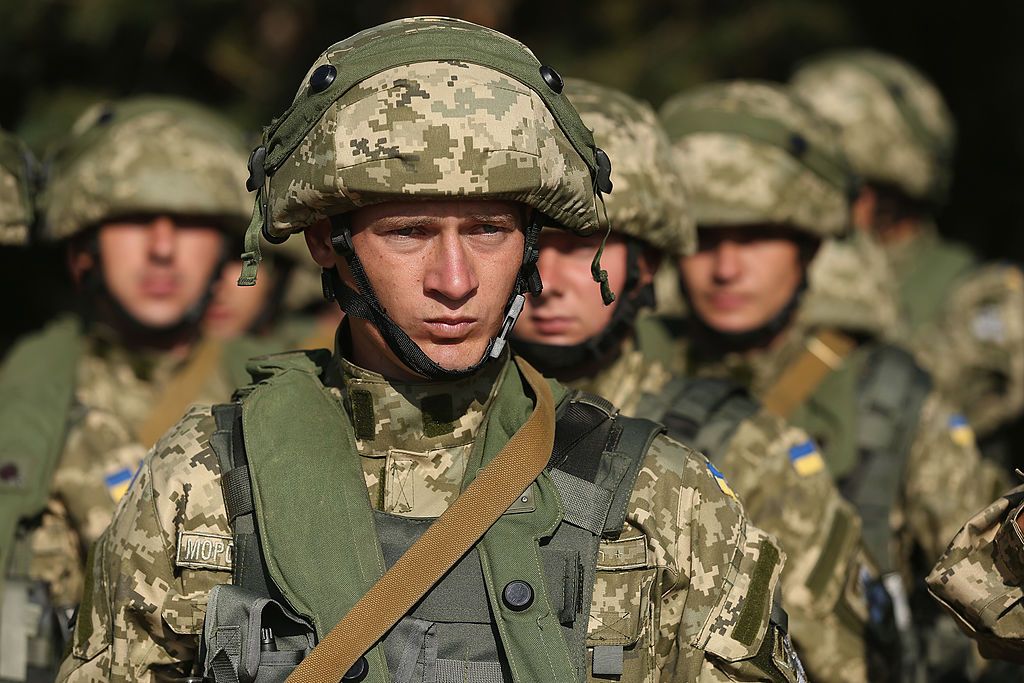Opinion: Peace in Ukraine will come through Putin’s fall, not a battlefield breakthrough
Guaranteeing Ukraine’s security will require increased military support, a clear path to NATO membership, and international support for Zelensky’s peace plan.

Ukrainian soldiers fire self-propelled artillery near Toretsk, Ukraine, on July 31, 2024. (Kostiantyn Liberov/Libkos/Getty Images)

Carl Bildt
Former Swedish prime minister
With Russian President Vladimir Putin’s war of aggression against Ukraine now well into its third year, there are mounting questions about whether any sort of peace or victory is possible.
Much depends, of course, on how one defines those terms. For Putin, the explicitly stated objective is to eliminate Ukraine as an independent nation-state and subject it to Russian control. Yet after two and a half years and a massive mobilization of military resources and manpower, Russia controls only around 18% of Ukraine’s territory, and most of that was grabbed back in 2014. Set against Putin’s war aims, the invasion has been a miserable failure.
Could this change? For a Russian victory to be even remotely possible, the West would need to end all forms of support – financial as well as military – to Ukraine, and the Ukrainian people would need to lose their will to resist. Absent either – or probably both – of these outcomes, Putin’s war aim seems unachievable.
There are no signs of a loss of will on the Ukrainians’ part. While a minority of respondents in opinion polls say they could accept some territorial concessions as a price for ending the war, these losses would fall far short of anything that would eliminate Ukraine from the map.
The many billions of dollars that have been flowing into Ukraine from Europe, the United States, and elsewhere have been crucial, and there are indeed questions about whether such support would continue if former U.S. President Donald Trump retakes the White House in November. But one must remember that the even larger sums coming from the European Union represent little more than 0.3% of GDP for each member state, on average. With no sign that Europeans’ political will is weakening, this support could perhaps be increased if necessary.
Moreover, Europe’s production of ammunition is expanding, with projections that output will reach two million artillery rounds next year. Russia, meanwhile, seems to be struggling to increase production, and has become increasingly reliant on ammunition from North Korea.

This is part of a larger pattern. The Russian military has consistently failed to pull off any successful large-scale offensive operations since the first weeks of the war. Though they have certainly tried – setting their sights on Kharkiv this summer – they have failed time and again. The bulk of Russian advances have been made by pulverizing smaller cities.
To be sure, the Ukrainian army has had its challenges. It succeeded in pushing Russia back around Kherson and Kharkiv in 2022, but then its highly anticipated counteroffensive in the summer of 2023 failed spectacularly. Still, the sudden offensive into Russia’s Kursk Oblast last month has demonstrated new and impressive capabilities, as well as reminding the world of the Ukrainian forces’ sheer grit and adaptability.
As matters stand, however, the Ukrainian army appears to have little chance of retaking the territory that Russia has occupied. It might well repeat the success of the Kursk operation somewhere along the front lines, which would have important political implications; but achieving sustained results beyond that will be challenging.
As long as Putin and his inner circle believe that they can grind down the will of the Ukrainians and their Western backers, they will continue the war. But when it dawns on them that this will not happen, and that Russia is on a path of increasingly rapid decline, things will change. Though it probably won’t happen this year, it is not unlikely in 2025. Then, perhaps, one can envisage some sort of interim arrangement that ends the fighting, albeit without delivering “victory” to either side.
A lasting peace, however, is a more challenging prospect. I do not think it will be possible until two conditions are met. First, Putin would have to lose power. He controls the Kremlin and Russian society with an iron grip, and he is far too wedded to his imperial obsession ever to accept a real peace. Second, Ukraine’s future must be firmly secured by membership in the EU and reliable Western security arrangements.
Then, and only then, might peace be possible. Such an outcome would be a victory not only for Ukraine, but also for Russia. Freed from self-destructive imperial projects, it could finally start to work on becoming a normal, prosperous twenty-first-century nation-state.
Editor’s Note: Copyright, Project Syndicate. This article was published by Project Syndicate on Sept. 20, 2024, and has been republished by the Kyiv Independent with permission.The opinions expressed in the op-ed section are those of the authors and do not purport to reflect the views of the Kyiv Independent.











